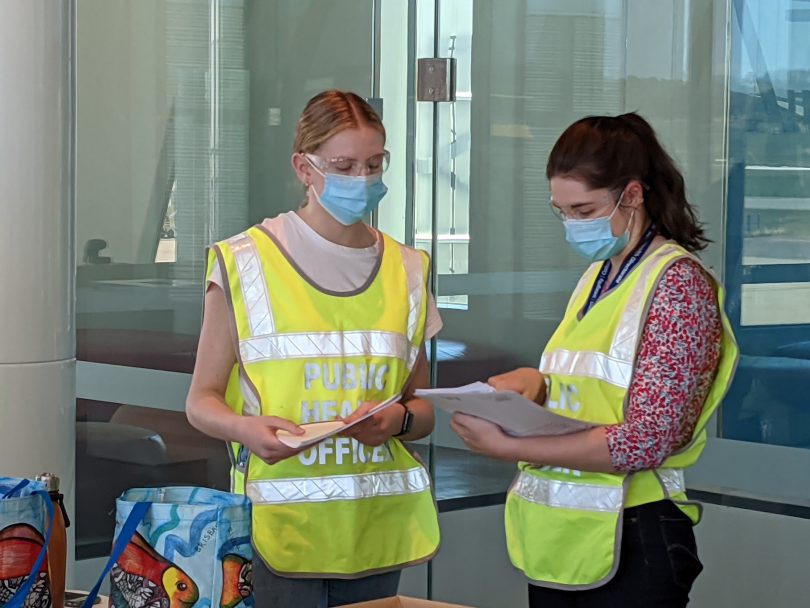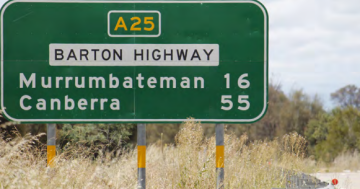
Public health officers Madeleine Kelly (left) and Illyria Tucker (right) are screening Adelaide arrivals for COVID-19. Photo: ACT Health.
The ACT Government is considering lower speed limits on major urban and rural roads to reduce the number of serious and fatal crashes occurring in the Territory, but on balance many of you think that’s not an effective way to enhance safety.
Major Projects Canberra has released a tender for a consultant to review major roads and prioritise those that would benefit from lower speed limits or other safety treatments such as roadside barriers. Practically speaking, this could mean that roads where there is currently a 100 km/h speed limit could be reduced to 90 km/h, or 80 km/h zones could become 70 km/h zones.
So far this year, six people have died on ACT roads.
But many of you argued that speed is far from the only factor in road safety
David Malcolm wrote “Lowering the speed limit won’t reduce crashes. The biggest cause of crashes is distraction”, while Jeremy Anthony put it more bluntly, noting “U can’t teach stupid!”
But Luke Rogers said “I agree 100%. Others may say it is the condition of the road, but when drivers do not drive to the conditions or when they drive at a speed higher than their abilities, the only control measure left is to lower the speed of all the vehicles. This approach has statistical validity as it gives everyone else more time to avoid the speeding idiots and reduces the velocity of the impact when things inevitably go wrong.”
We asked: Do speed limits create safer roads? 708 of you replied to the poll, and it was a relatively close result.
Your choices were to vote Yes, it’s common sense and makes little difference to travel times. This received 37 per cent of the total, or 263 votes. Alternatively, you could vote No, it’s a simplistic response instead of better road design. This received 63 per cent of the total or 445 votes.
This week, as two planeloads of returning travellers arrive at the Canberra Airport, we’re wondering about whether you think we can manage their arrival safely?
Canberra will receive two repatriation flights before Christmas, enabling more stranded Australians to return home. The ACT government is in discussions with the Commonwealth over the timing of the flights, their point of origin and the number of travellers.
Hotel quarantine arrangements would need to be finalised before any overseas passengers arrive in Canberra. The news comes amid heightened concerns over the South Australian outbreak as controls are imposed at the Canberra Airport.
But Acting Chief Medical Officer Professor Paul Kelly said this week that Australians returning from countries with high case numbers, such as the UK, USA and India, posed the greatest risk.
“The hotel quarantine is our main game. When you think about what’s happening overseas, over 55 million cases now, enormous numbers in many countries and that is where Australians are coming back from,” he said.
“We expect that some of those people that come back at this time will be infected and indeed can be infectious, so anyone in close contact, even with the very best precautions, can be at risk.”
Given that the ACT has never experienced community transmission and that our sporadic infections have all come from returning travellers, should we accept travellers who might pose a risk to our well-being?
Our poll questions this week is:





















